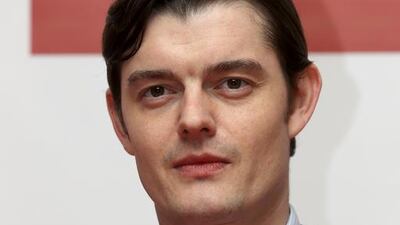We apparently now live in an era of “alternative facts”, so it is perhaps not surprising that the alternative-history genre has been making something of a comeback in film and on television in recent years.
Ben Wheatley's film adaptation of J G Ballard's High-Rise was a surprise indie box-office hit last year, while in X-Men: Days of Future Past (2014), Hugh Jackman's Wolverine travelled back in time to alter the dystopian future the titular mutants were living in.
Then there was the 2012 remake of the 1984 film Red Dawn, which replaced the Soviet invasion of the United States in the original with a North Korean attack.
On TV, meanwhile, The Man in the High Castle – loosely based on the novel by Philip K Dick and set in a world where the Axis forces defeated the Allies in the Second World War, and control of the US is split between Germany and Japan – has been a hit for Amazon's streaming service, with a third season due next year.
Now the BBC is getting in on the act with SS-GB, an adaptation of Len Deighton's High Castle-esque 1978 novel set in Nazi-occupied Britain in the early 1940s, shortly after Britain surrendered following a German invasion. The series began on BBC First on OSN last Friday.
Sam Riley, who plays Scotland Yard detective Douglas Archer, notes that our fascination with alternative histories goes back way before 1970s dystopian fiction.
“It’s just fascinating to ask yourself ‘what if?’” he says.
"Amazingly, there was actually a British propaganda film on this subject released in 1942. Based on a story by Graham Greene, Went the Day Well? is set within a year of our imagined history. It's about a group of Nazi paratroopers who arrive in a small English village. They act as if they're British, but they're actually the beginning of a Nazi invasion.
“It’s a brilliantly chilling film. That idea fascinated people during the war – and it still fascinates us today.”
The continuing rivalry between Britain and Germany provides an extra edge, Riley suggests.
“We can be quite smug in Britain,” he says. “At England v Germany matches, England football fans have been known to sing, ‘Two Worlds Wars and one World Cup’ – but had things gone slightly differently, we could have lost the Battle of Britain. If the weather has had been a little bit different, the Nazis might have won.
"In that case, it's very interesting to think: 'Would I have been part of the Resistance or a collaborator?' Those sort of 'what ifs' are what make SS-GB so compelling."
British actor Riley is best known for appearing in films such as Control, in which he played the late Joy Division singer Ian Curtis, Pride and Prejudice and Zombies, and Maleficent.
His co-stars include American actress Kate Bosworth (Blue Crush and Still Alice) and Scottish actor James Cosmo (Trainspotting, Braveheart, Game of Thrones).
Writers Robert Wade and Neal Purvis have written six Bond films together, though Riley and Wade agree that TV is rapidly catching up with the big screen in terms of quality and prestige.
“When I got my first job 10 years ago, cinema was still the medium all actors wanted to work in,” says Riley. “TV was just a stepping stone towards cinema. But that has very much changed in the last decade.
“Now you see loads of movie stars in TV series. TV is really not the poor relation anymore.”
TV is the perfect medium in which to tell the SS-GB story, according to Wade.
“The book is complex,” he says. “It needs that wide canvas that TV gives you. The producers encouraged us not to scale down our imaginations.
“ If it’s beamed into people’s living rooms and maybe it’s a family watching it on a Sunday night together, they might think, ‘Actually this could be happening outside our door.’
“It’s the sanctity of the sitting room that’s being invaded by this. That’s why TV is especially potent. Great acting, production and direction have made that come to pass. For TV, it’s spot on.
“People say, is it disrespectful to picture us having lost the war? But we could easily have lost. I think it’s important to show how heroic our antecedents were because they actually stuck to it.
“The politics of Europe are all about compromising because they were left to pick up the pieces after the war. It changes everything – so hopefully this TV show will make people think.”
• New episodes of SS-GB are shown every Friday on BBC First on OSN at 10pm, with repeats throughout the week.
cnewbould@thenational.ae

